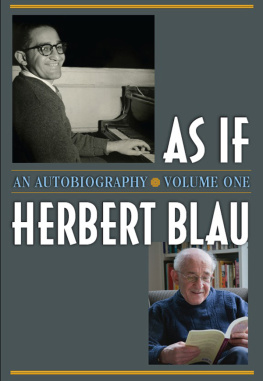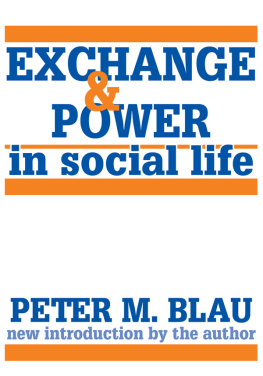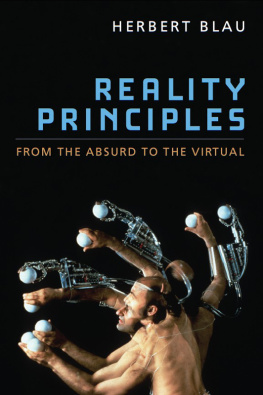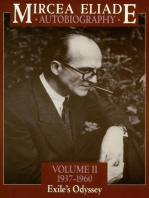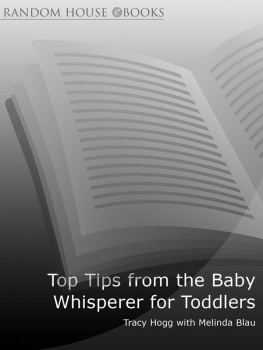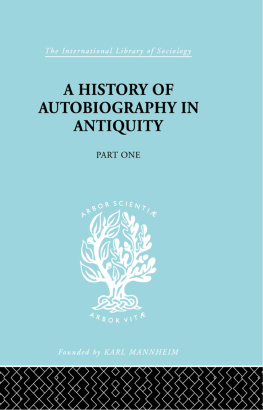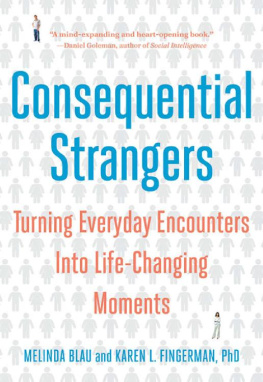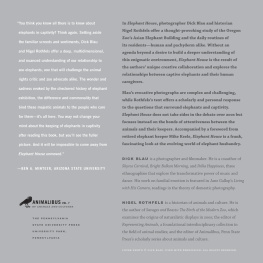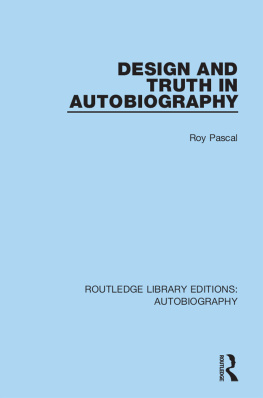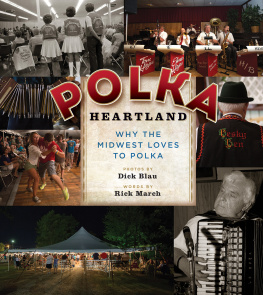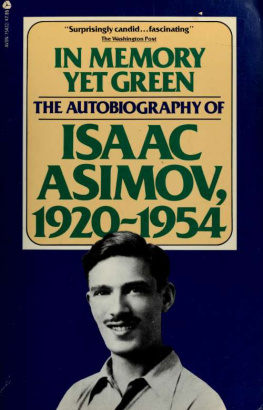Blau - As If: an autobiography: volume 1
Here you can read online Blau - As If: an autobiography: volume 1 full text of the book (entire story) in english for free. Download pdf and epub, get meaning, cover and reviews about this ebook. City: Ann Arbor;United States, year: 2012, publisher: University of Michigan Press, genre: Non-fiction. Description of the work, (preface) as well as reviews are available. Best literature library LitArk.com created for fans of good reading and offers a wide selection of genres:
Romance novel
Science fiction
Adventure
Detective
Science
History
Home and family
Prose
Art
Politics
Computer
Non-fiction
Religion
Business
Children
Humor
Choose a favorite category and find really read worthwhile books. Enjoy immersion in the world of imagination, feel the emotions of the characters or learn something new for yourself, make an fascinating discovery.
- Book:As If: an autobiography: volume 1
- Author:
- Publisher:University of Michigan Press
- Genre:
- Year:2012
- City:Ann Arbor;United States
- Rating:3 / 5
- Favourites:Add to favourites
- Your mark:
- 60
- 1
- 2
- 3
- 4
- 5
As If: an autobiography: volume 1: summary, description and annotation
We offer to read an annotation, description, summary or preface (depends on what the author of the book "As If: an autobiography: volume 1" wrote himself). If you haven't found the necessary information about the book — write in the comments, we will try to find it.
Blau: author's other books
Who wrote As If: an autobiography: volume 1? Find out the surname, the name of the author of the book and a list of all author's works by series.
As If: an autobiography: volume 1 — read online for free the complete book (whole text) full work
Below is the text of the book, divided by pages. System saving the place of the last page read, allows you to conveniently read the book "As If: an autobiography: volume 1" online for free, without having to search again every time where you left off. Put a bookmark, and you can go to the page where you finished reading at any time.
Font size:
Interval:
Bookmark:

Copyright by the University of Michigan 2011
All rights reserved
Published in the United States of America by The University of Michigan Press
Manufactured in the United States of America Printed on acid-free paper
Printed on acid-free paper
2014 2013 2012 2011 4 3 2 1
No part of this publication may be reproduced, stored in a retrieval system, or transmitted in any form or by any means, electronic, mechanical, or otherwise, without the written permission of the publisher.
A CIP catalog record for this book is available from the British Library.
Library of Congress Cataloging-in-Publication Data
Blau, Herbert.
As if : an autobiography / Herbert Blau.
p. cm.
Includes index.
ISBN 978-0-472-11778-9 (cloth : alk. paper)
1. Blau, Herbert. 2. Theater criticsUnited StatesBiography.
I. Title.
PN1708.B53A3 2011
792.092dc22 2010047517
[B]
ISBN 978-0-472-02755-2 (electronic)
As if, as if, it is all ifs; we are at much unease.
MARIANNE MOORE, ELEPHANTS
As if life can be reduced to a narrative with a simple line; as if life can't be reduced to a narrative with a simple lineas if life is in any way a narrative.
FROM JOURNAL, DECEMBER 28, 1971
ONE
THE RIGHT SIDE OF THE TRACKS
My father read the newspaper from back to front, as if it were the Talmud. He read every word of it (though let me not be misleading, he was skeptical about the Talmud), without worrying about origins or the sense of an ending. He was convinced that wherever it started, whatever it was, it couldn't be trusted. No matter what was reported about it, there was nothing but thievery from beginning to end. But as though to confirm it again, the irrefutable, the inarguable, he read in reverse scruple, backing through the news, and if a story were continued, so what? he already knew the story, as he also knew the score, but he had to read it all, with headlines, subheads, captions, columns and other commentary, profiles, reviews, letters, stock listings and market statistics, the edgy ups and downs, as in the major-league standings or shifting decimals of batting averages, comic strips and cartoons, the schedule of ship sailings, obituaries, classifieds, everything from the editorials to the finest print of ads, and in every section on Sundays. They're all the same, he'd say, as he closed the paper with a hard crease, front page up. He didn't care about a referent. They. The pronoun could shift all it wanted, he knew who they were. They were all the same.
Hadn't he seen for himself, daily, in The Daily News, biggest circulation in the countrywell, maybe not then but soon to come as the other papers folded, the Mirror, the Journal, the Telegram, the Trib, only the Post left in the afternoon. You could hardly believe it today, but the Postthat virulent tabloid of the smirking Rightwas for the sympathetic Left, or what passed for liberals then (a word more scarce at the time) or for those too politically pantywaist to be thought of as Trotskyite. Whatever you called them, you couldn't trust them. My father was a socialist, but he worried about them too, as he did about the unions, though he was a card-carrying charter member of Plumbers Union Local #1. Where we livedwith a Communist storefront in the neighborhood (and recruiting parties on Friday nights)the Daily Worker was on the newsstand of the candy store downstairs, but you'd be hard pressed anywhere to find The New York Times. And why would you want to, All the News That's Fit to Print?which for my father was worthless too, and not a picture on the page. That's of course changed today, and with color no less in the Times, a sort of plaintive washout of color, sometimes adorning atrocities that, as they replicate past the millennium, with no perversion, disease, horror, barbarity unimaginedserial killings, child murder, rape, ingenuities of abuse (not only familial and bureaucratic, but also priestly too), AIDS, genocide, jihads, and in the repertoire of the lethal (preserving virtue or power), amputations, stonings, machetes in the Congo and global weapons of mass destruction, biological warfare, and maybe even cyborgian, as well as the excruciating intelligence of torture never shownrecurrently makes me wonder how we read the news at all. Which I do with the Times every morning, like my father with the News, almost as compulsive, but going front to back, as if not wanting to escape the worst of it, or what we're waiting for, like the inevitable news of a suicide bomber in a downtown shopping mall, and with the occasional feeling that in any direction my father had it easy.
Still, the fact of the matter was that he had it grievously right; long before the Absurd, none of it made sense. Nor was that an excuseno more than it was in Beckett, with his excruciating intelligencefor thinking it might get better. Use your head, use your head, you're on earth, there's no cure for that! That outburst, over the years, I've often quoted from Endgame. So, if that's a revelation, what's new? my father would say. As for the news not fit to print, you might have found some of it back then (more of it now, though it's being printed) had you followed this direction: over the Manhattan Bridge, left off Flatbush onto Atlantic Avenue, then straight out toward East New York, to where the Long Island Railroad cuts below the street, like a coronary bypass of the Jewish heart of Brooklyn.
There was a bridge over the tracks which I patrolled when, in fourth or fifth grade at school, I was captain of the Safety Scouts and, with a quadrangular silver badge, tilted and cusped, snug around my arm, had a ritual fight with the leader of a black gang, or his surrogate, several mornings a week, to keep things moving over the crossing. The martial arts were not on the scene, but there was a studied, Kabuki-like formality as the contest began, attaining in its repetitionsnot irredeemably brutal, though it could be briefly fiercea condition of equilibrium, thereby keeping the peace (which made more sense, at least, than the news as my father saw it). We usually fought in silence with a little crowd gathered around, either up on the bridge with its concrete walls, or under the steps below. The black kids were usually more agile, but soon as I saw it coming, no turning back, I had a way of reaching out quick for a collar, holding on tight with the right hand and punching steadily with the left, not down in the belly but crack there on the cheekbone or dead on in the nigger's face. And if the counterpunching was trouble I was damn good at wrestling too, moving from collar to head-lock and getting an elbow under the chin, either choking or jabbing with that, when I got him on the ground. I must have done pretty well, because they never took away my badge, which I polished every day.
It meant more to me, I think, than the gold medal the principal gave me at an assemblyI didn't know it was graduationfor being the best student. It was not only embarrassing to be called on stage, but something of a surprise, because I was too busy fighting or playing ball to worry about studying then. Well, I must have somehow used my head, since I did get pretty high grades and was graduating a year early, having been skipped twice. My father, who was not given to bragging about his kids, not only watched me playing ball, and now and then fight as well, but also saved my report cards to show around. As for the fighting, if my mother didn't like itonce coming after me with a broomstick to make me stopand he couldn't quite approve, he never interfered, except the one time he grabbed me, when he saw me backing away, and pushed me toward a bully, a wop named Nutchie, older than me, bigger, much too much of a match. It may have been because my father was there, but Nutchie was so startled when, crying in a rage at being forced to fight, I went with unceasing fury head first into his groin, grappling, butting, kicking, throwing punches wildly, through whatever he did, that he backed off himself. The turnaround would have been impossible without an accompaniment, of course: cocksucker, motherfucker, shithead Italian prick! the repertoire was endless, out of neighborhood fuck-you contests, fuck you too and up your ass (which you still can't print in the
Font size:
Interval:
Bookmark:
Similar books «As If: an autobiography: volume 1»
Look at similar books to As If: an autobiography: volume 1. We have selected literature similar in name and meaning in the hope of providing readers with more options to find new, interesting, not yet read works.
Discussion, reviews of the book As If: an autobiography: volume 1 and just readers' own opinions. Leave your comments, write what you think about the work, its meaning or the main characters. Specify what exactly you liked and what you didn't like, and why you think so.

